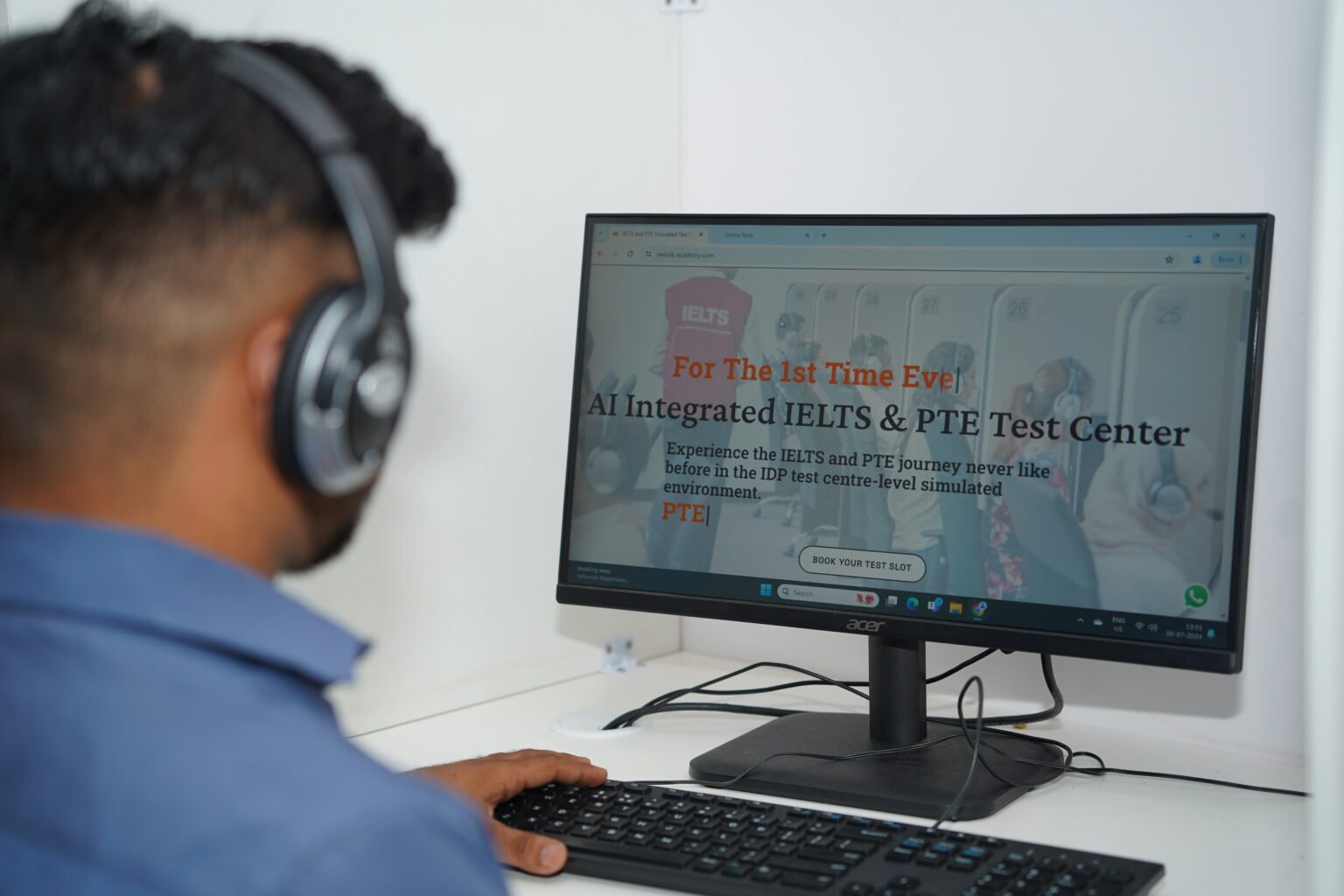
Strategies for Improving Listening Skills in IELTS, PTE, and OET
Listening skills are crucial for success in the IELTS, PTE, and OET exams. Each of these tests evaluates your ability to understand spoken English in various contexts, which is essential for academic and professional settings. Developing strong listening skills can significantly boost your overall score. Here are some effective strategies to improve your listening abilities for these exams.
Understanding the Exam Formats
IELTS Listening
The IELTS Listening test is 30 minutes long, with an additional 10 minutes to transfer your answers to the answer sheet. It consists of four sections:
- Conversation between two people in a social context.
- Monologue in a social context.
- Conversation between up to four people in an educational or training context.
- Monologue on an academic subject.
PTE Listening
The PTE Listening test lasts for 45-57 minutes and includes multiple question types:
- Summarize Spoken Text
- Multiple Choice, Multiple Answer
- Fill in the Blanks
- Highlight Correct Summary
- Multiple Choice, Single Answer
- Select Missing Word
- Highlight Incorrect Words
- Write from Dictation
OET Listening
The OET Listening test is 50 minutes long and consists of three parts:
- Part A: Consultation extracts (two recorded healthcare consultations with gap-fill tasks).
- Part B: Short workplace extracts (six short recordings, multiple-choice questions).
- Part C: Presentation extracts (two longer recordings, multiple-choice questions).
General Strategies for All Exams
- Active Listening Practice: Engage in active listening by focusing entirely on the audio and avoiding distractions. Listen to a variety of English accents and topics to prepare for the diverse content in the exams.
- Take Notes: Develop a habit of taking brief, effective notes. Use symbols and abbreviations to jot down key points quickly. This can help you remember important details when answering questions.
- Use Subtitles: Start with subtitles if you’re struggling, and gradually remove them as your understanding improves. Watching English movies, TV shows, and news without subtitles can enhance your listening skills.
- Summarize Content: After listening to any audio, try to summarize it in your own words. This exercise can help you retain information and improve comprehension.
- Practice with Mock Tests: Regularly take practice tests to familiarize yourself with the exam format and improve your time management skills. Use resources from trusted websites like IELTS IDP India and NeoVIK Academy for realistic practice.
Specific Strategies for IELTS
- Predict Content: Use the time given to read the questions before each section to predict what the audio will be about. This helps you stay focused and anticipate answers.
- Focus on Keywords: Listen for keywords or synonyms in the audio that match the questions. This can help you locate answers more quickly.
- Understand Distractors: Be aware that the speakers might use distractors to mislead you. Stay alert and don’t be swayed by information that doesn’t directly answer the question.
- Practice Different Accents: The IELTS listening test includes various accents, such as British, Australian, and American. Listen to audio materials in these accents to become more comfortable with them.
Specific Strategies for PTE
- Improve Note-Taking Skills: For the “Summarize Spoken Text” task, practice taking concise notes. Capture main ideas and supporting details without writing full sentences.
- Typing Speed: Since the PTE is a computer-based test, improving your typing speed can help you complete tasks more efficiently.
- Focus on the First Listening: You often don’t get a second chance to hear the audio. Concentrate fully the first time around to capture as much information as possible.
- Highlight Key Information: Use the highlight tool to mark important parts of the audio. This can help you answer questions that require attention to detail.
Specific Strategies for OET
- Familiarize with Medical Terminology: Given the healthcare context of the OET, it’s essential to be comfortable with medical terminology. Listen to medical podcasts, lectures, and consultations.
- Identify Main Ideas and Details: In Part A, focus on identifying the main ideas and specific details. In Parts B and C, concentrate on understanding the gist and key points of each recording.
- Listen for Context: Understanding the context of the conversation can help you predict the type of information that will follow, aiding in comprehension and recall.
- Practice Gap-Fill Tasks: For Part A, practice filling gaps while listening. This improves your ability to catch and record critical information quickly.
Additional Resources
- IELTS IDP India: Visit IELTS IDP India for practice tests, tips, and resources tailored for IELTS preparation.
- NeoVIK Academy: Explore NeoVIK Academy for comprehensive courses, AI-integrated simulations, and expert guidance for IELTS, PTE, and OET.
- Podcasts and Audiobooks: Listening to podcasts and audiobooks in English can improve your listening skills. Choose topics that interest you to stay engaged.
- Language Learning Apps: Use apps like Duolingo, Babbel, or Rosetta Stone that offer listening exercises as part of their curriculum.
Building Listening Habits
- Daily Listening Practice: Make listening practice a part of your daily routine. Even 15-20 minutes of focused listening can make a significant difference over time.
- Mix It Up: Listen to a variety of content, including news reports, documentaries, lectures, and casual conversations. This helps you get used to different speaking styles and contexts.
- Join Study Groups: Joining study groups or language exchange programs can provide additional listening practice and exposure to different accents and speaking speeds.
Self-Assessment: Regularly assess your progress by recording yourself summarizing what you’ve heard. Compare your summaries to the original content to identify areas for improvement.
Conclusion
Improving your listening skills for the IELTS, PTE, and OET exams requires consistent practice and strategic preparation. By utilizing the tips and resources provided, you can enhance your ability to understand spoken English and perform confidently in your exams. Remember, the key to success lies in persistent effort and a willingness to engage with a variety of listening materials. Happy studying, and best of luck with your exam preparation!
